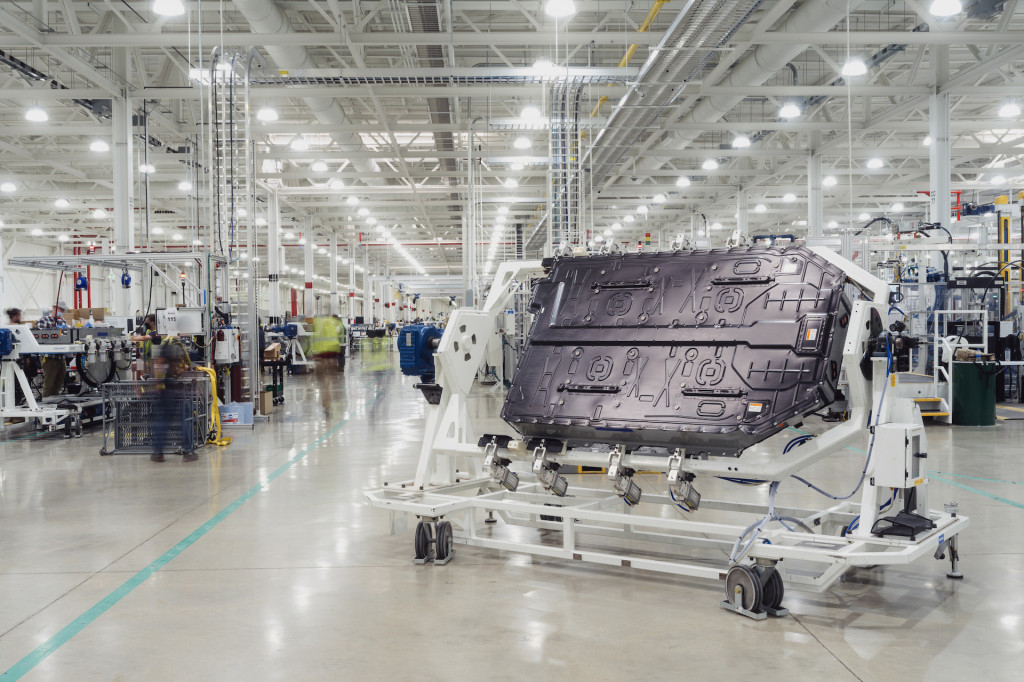Following substantial increases in 2022, EV battery prices are falling again, according to new analysis from Bloomberg New Energy Finance (BNEF).
Lithium-ion battery pack prices have fallen 14% this year to a record low of $139 per kwh, BNEF reported this week. This was driven by decreases in raw-material and component prices, as well as production increases coupled with "weaker-than-expected demand," analysts reported.
BNEF predicts 53% year-on-year growth in demand for batteries in both EV and stationary energy storage applications. But many manufacturers still reported underutilization of battery plants, which caused many to revisit production targets. That in turn freed up materials and lowered prices.

Rivian battery pack
The overall figures represent multiple battery uses, including passenger cars, buses, and stationary energy storage. For EVs specifically, BNEF said pack prices have been $128/kwh on a volume-weighted average basis in 2023 to date. EV cell prices were just $89/kwh, or 78% of the total pack price.
The report also underscores that lithium iron phosphate (LFP) battery prices were even lower, falling below $100/kwh at the pack level (as opposed to the cell level, as with the overall average for lithium-ion batteries). And BNEF notes that the full effect of Inflation Reduction Act (IRA) measures on battery prices hasn't been felt yet.

Mercedes-Benz Alabama battery factory
This is great news, as analysts in 2022 had largely said that soaring raw materials prices would put EV affordability gains on hold through at least 2024. Even with those surging prices, though, the Department of Energy underscored that in 2022 money, costs have kept falling—slightly.
Despite all of this, the trend toward ever-larger battery packs will put a strain on the supply chain. And prices have some distance to go to $60/kwh, where the DOE sees EVs becoming cheaper than internal-combustion vehicles.












